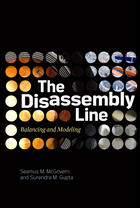INDUSTRY HEADLINE
PolyU Establishes University Research Facility in 3D Printing

HONG KONG — The Hong Kong Polytechnic University launched the University Research Facility in 3D Printing (U3DP), the first 3D printing facility among higher education institutions in Hong Kong to support teaching, learning and research. It is also the largest research center in 3D printing, in terms of the range and quantity of facilities in Hong Kong.
With an area of 620 square meters and more than 50 sets of 3D printers for different functions and materials, the URF in 3D Printing provides state-of-the-art 3D printing facilities which will help the followings:
• Teaching and learning: enabling students to realize ideas and concepts into physical models
• Research and development: developing new structures, new materials, devices and sensors
• Knowledge transfer: collaborating with a wide variety of industries for product innovation
• Innovation and creativity: personalizing designs, materializing concepts and designs
The U3DP is expected to help faculty members and students excel in their teaching and learning, research and innovation with the aid of 3D printing technologies. With the full range of technologies from 3D scanning, computer aided-design modelling to printing, and the full range of materials including metal, plastic, biocompatible resin, silver ink and graphene, resulting in multi-material and multi-color output, the imagination of faculty members and students can be unleashed, with their innovations, designs and prototypes materialized easily.
At the Opening Ceremony today, Mr Chan Tze-ching, PolyU council chairman remarked, “The U3DP will provide an innovative and inspirational environment for faculty members and students to make the best use of their capability in innovation and creativity. It will also help strengthen industry-PolyU collaboration through research and consultancy.”
Officiating at the opening ceremony, Professor John Leong Chi-yan, chairman of Hospital Authority, said the collaboration between the PolyU and Queen Elizabeth Hospital (QEH) is a good example of how local talents get together to improve the quality of medical care in Hong Kong.
"We are proud to see the Transcatheter Aortic Valve Implantation (TAVI) Simulation Model unveiled today, it is a made-in-Hong Kong technology that benefits our patients and help train our doctors. PolyU is one of the pioneers in developing 3D printing technology on health care, while the QEH simulation training experts and cardiologists have made much effort and contribution over the years in training doctors with ultra-high operative skills before they walk in the operation theater to conduct complicated surgical procedures. It is encouraging to see the two great teams work together, I look forward to seeing more collaboration of such kind in the future,” Leong said.
The Queen Elizabeth Hospital has teamed up with PolyU to support the training for medical staff through the collaborative development of a 3D printed simulation training model mimicking the real clinical procedure, with a view to enhancing the quality of healthcare service for the community. As the Government pledges to support the development of Industry 4.0, the U3DP in 3D printing will certainly be a key player in the process, enabling and facilitating the research of many new initiatives.
For more information, visit www.polyu.edu.hk.
Looking for a reprint of this article?
From high-res PDFs to custom plaques, order your copy today!






